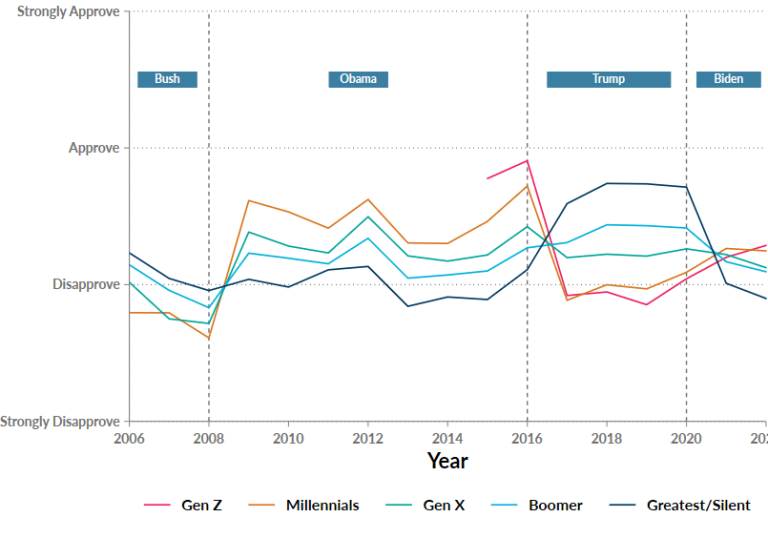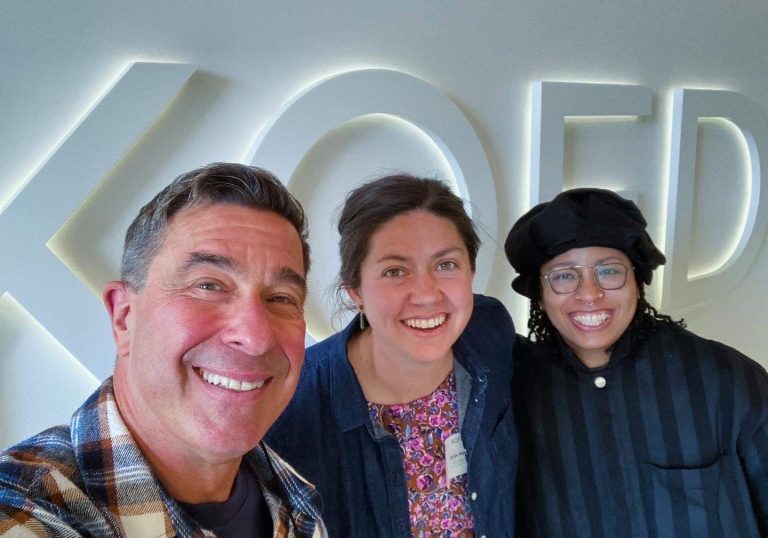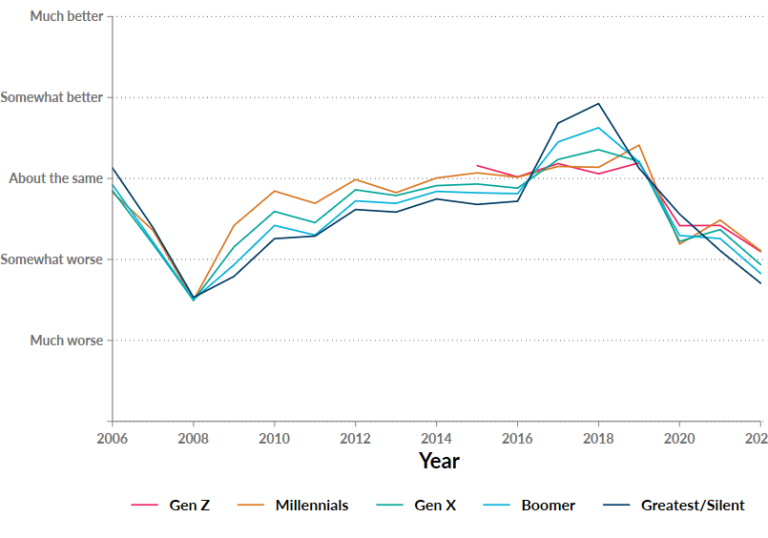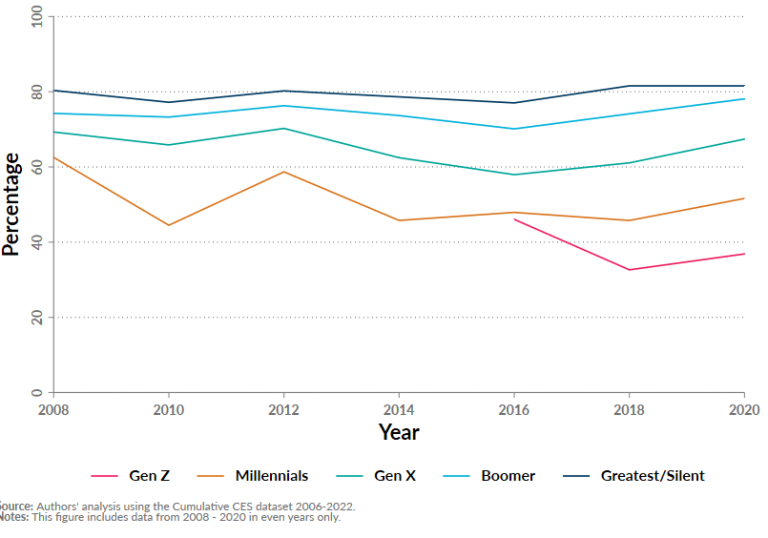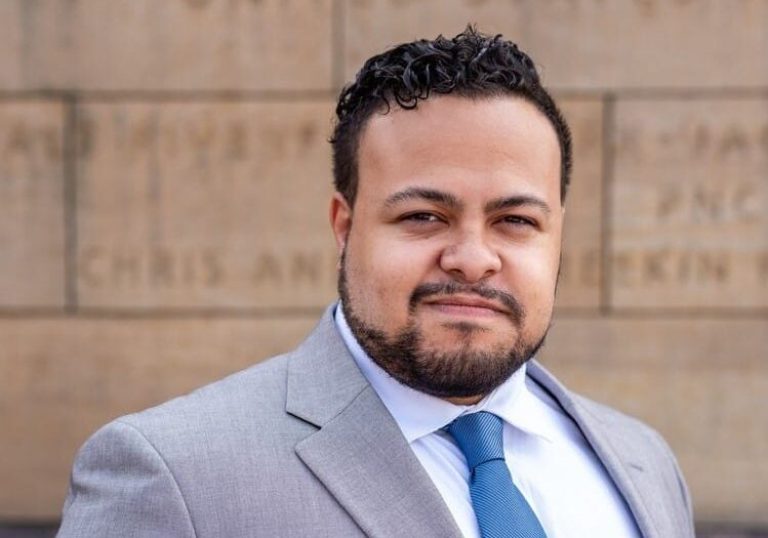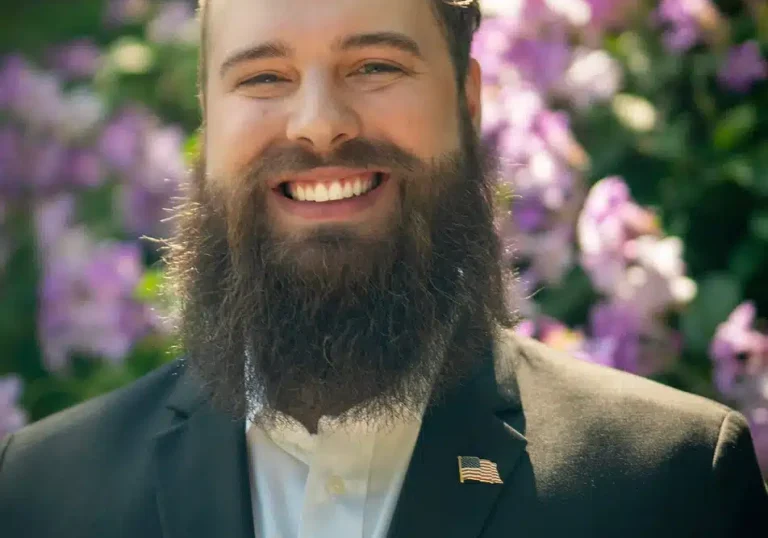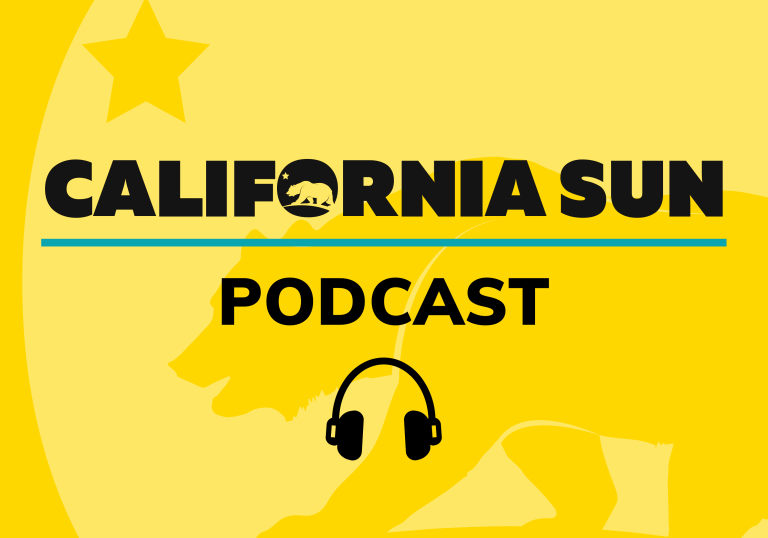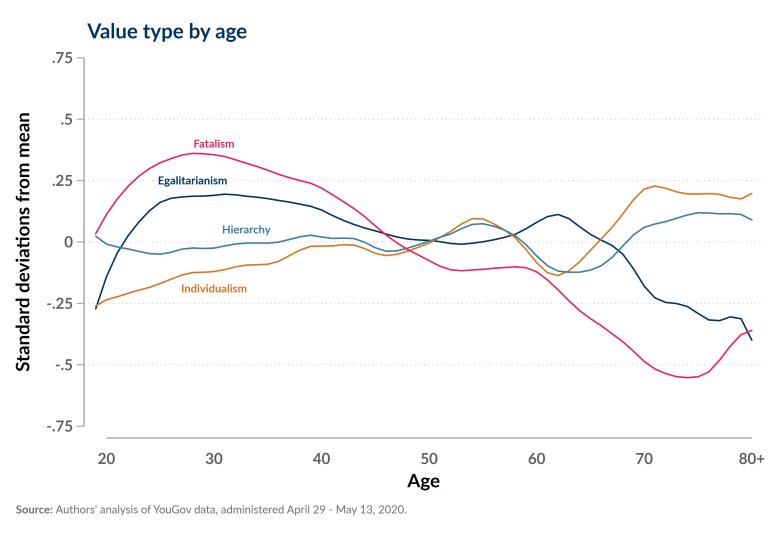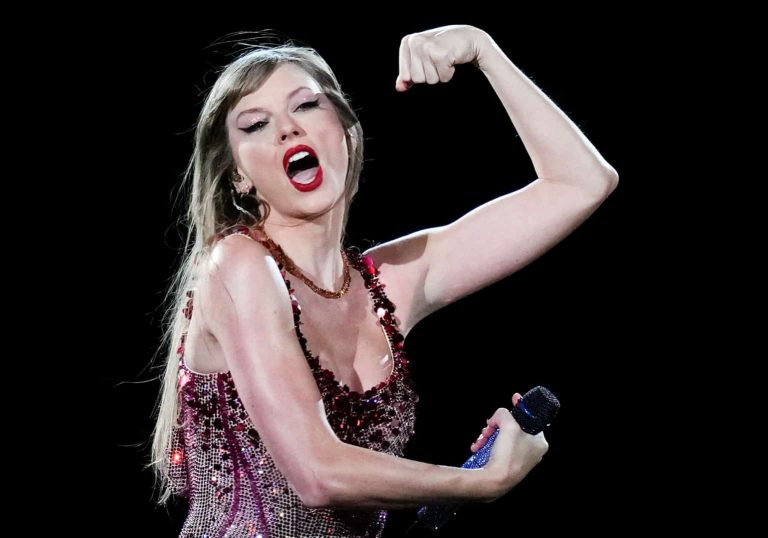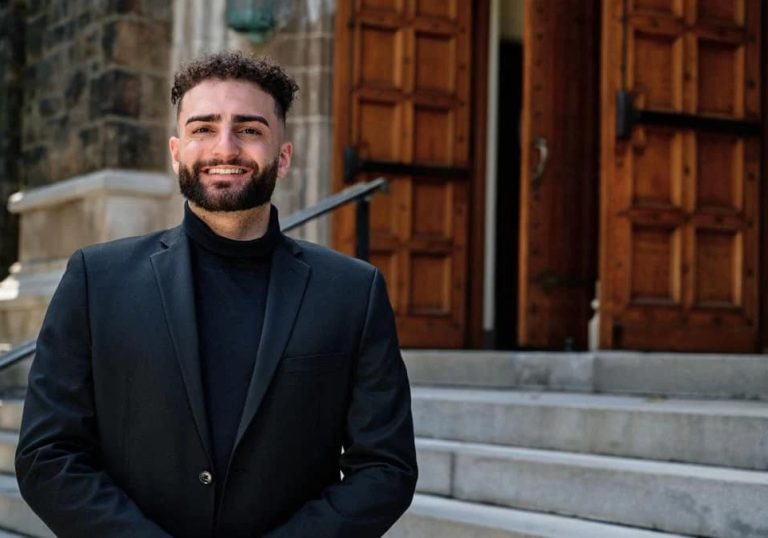2024 Election Vibe Check: Interviews with the Next Generation of Leaders in American Politics
To better explore the state of youth voices in American politics as we enter the 2024 Election Year, BIFYA is publishing a series of interviews with members of GenZ who are running for office across the country. In an era where the political sphere is undergoing transformative changes, we hope this series of interviews will bring to the forefront a diverse array of young political candidates and highlight their motivations, aspirations, and unique perspectives.
The views and opinions expressed in the following interviews are solely those of the individual political candidates and do not necessarily reflect the views of the Berkeley Institute for Young Americans or UC Berkeley. We aim to provide a platform for diverse perspectives. Any opinions, claims, or statements made by the candidates are their own, and we encourage readers to critically evaluate the content while respecting the principles of open dialogue and democratic discourse.
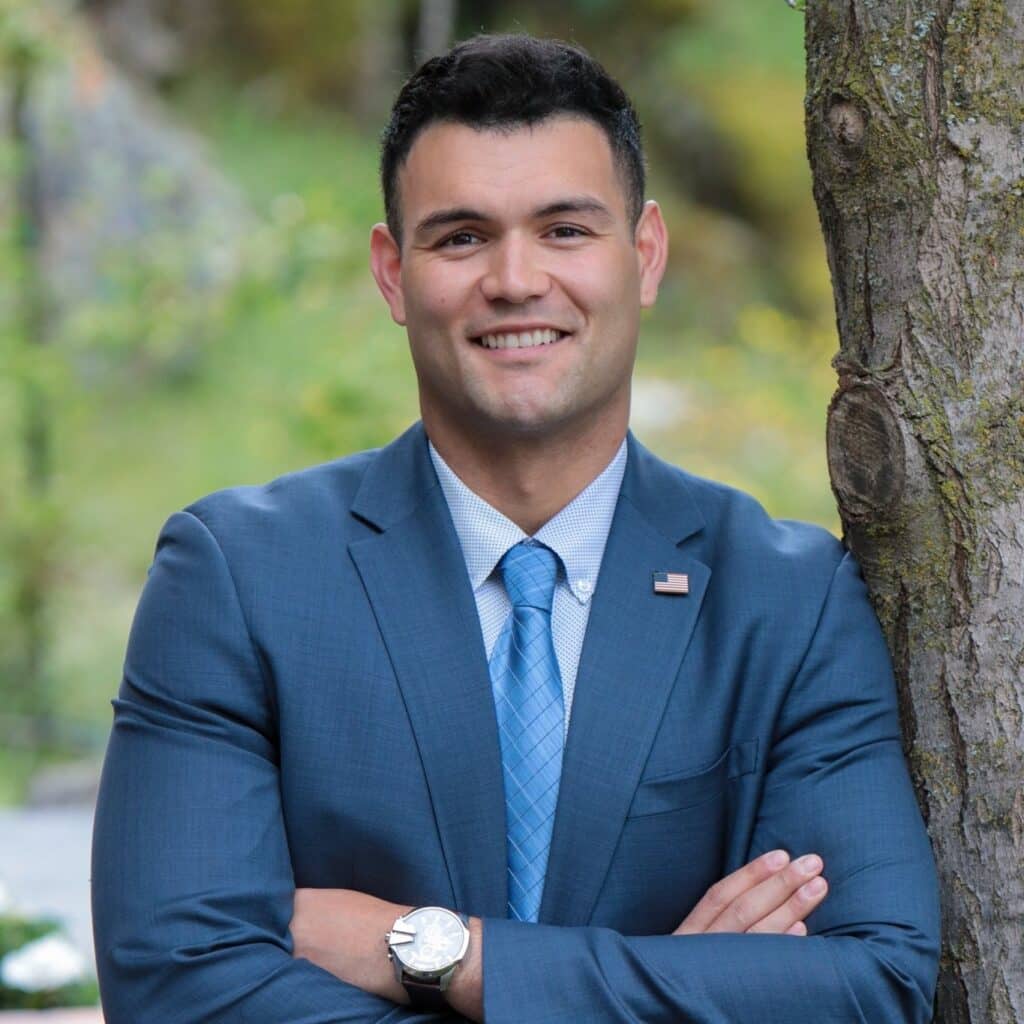
David Tangipa is a San Joaquin Valley native. A proud, first-generation American and son of a veteran, David was born and raised in Sacramento and has lived his entire adult life in Fresno. He attended Fresno State and played tight end for the Bulldogs where he learned the importance of discipline, hard work, and spirit of the Central Valley.
After earning a bachelor’s degree in Political Science and Criminology, as well as a master’s in Business Administration with an emphasis in marketing, David embarked on a career to help people live the American dream of owning a home.
BIFYA: You’re running for California Assembly in the Eighth District. What made you decide to run?
David: I look at the state of California. We’re the fifth largest economy in the world, yet we have rolling blackouts. I think that’s kind of a bad punchline to a bad joke.
And I love this area. I was born and raised right here in the Central Valley. My mother is an immigrant from the island of Tonga, and my father is a 100% disabled veteran. I earned an opportunity to go play football at Fresno State, and that education was the greatest equalizer. I just see how special a community Central California is, and I think about all these people that helped me get to the position that I am in today at 28 years old. As a business owner and as the first person in my family who has graduated from college, it took special people to buy into my story. And now I want to go to Sacramento and I want to serve them.
BIFYA: What would you bring as a younger candidate?
David: I think we understand the difference in the generations. I think there’s a big disconnect as I’ve worked in politics, and I’ve engaged with difference. Those before us do not understand a lot of the hardships that we go through today. Where they were able to kind of break the mold a little bit faster, we’re actually stuck spinning our wheels. I work in real estate because homeownership has historically been the easiest way to break generational poverty. But then when the average home price in California is over $700,000 and you add in 8% interest rates, the next generation feels like the system’s rigged against us simply because we don’t have the same opportunities that those before us got. So that’s where I want to bring in these new ideas. Things that may have worked in the past, they don’t work today because our mindset and the way that our generation thinks is significantly different than those before us.
BIFYA: What are the challenges of running for office as a young candidate? What are the advantages?
David Tangipa: I’ve always gotten questions about my age and experience. But that doesn’t bother me. It’s the same thing when I worked in real estate and when people would ask me, Well, why should I work with you as a young real estate agent? If age was associated with wisdom, then we [would] think that our leaders right now are the smartest people in the world. And I can tell you by the polling numbers, people don’t think that. We’ve just been complacent and allowed these same individuals to be in the same positions for decades. And it’s our turn to really step up. Young people make the largest portion of the population, but we’re extremely underrepresented.
BIFYA: Do you think your candidacy has potential to bring out more of the youth vote? And tell us about your experience engaging with young voters.
David Tangipa: It really breaks my heart, the disengagement young voters are going through – even though we’re some of the most active individuals who have some of the largest opinions. But we don’t participate in the active civic engagement portion of it. And so, yes, that is actually a big push of mine, to get others just like me more involved.
We talk about our opinions online. We’re pretty open, you can look at anybody’s Tumblr, Instagram, and all of that. We can really find our personalities out there online, yet we don’t vote at the highest prevalence that we should, especially when we make up the largest share of eligible voters. We can dictate the future, but we choose not to. And so that’s my biggest focus, actually getting the young and the youthful engaged because if we want to see the difference that we all want to make, whether it’s [one] side or the other, then it’s up to us to step up and do something about that.
BIFYA: At your campaign events, what is the average demographic in the room? Are you seeing more young voters?
David Tangipa: Yes, I do get a lot of youthful engagement, I’ve got a list of over 100 volunteers, a majority of them are within the ages of 20 and 35. So that’s really good.
BIFYA: With your background in real estate and California policy, what are some specific policies California should be pushing to address the housing affordability problem?
David Tangipa: When it comes to the affordability crisis, I do look at fire insurance as a big one because that affects my district a lot. The only way to make fire insurance more affordable is to reduce the risk of fire. And so that’s what proper forest management is. I look at it kind of like a big umbrella of policies.
So back in 2002, the state legislature passed SB 1078 which created the Renewable Portfolio Standard. This incentivized wind, solar and all good forms of energy, but they added a 30-megawatt limit on large scale hydroelectric facilities. And so that means a lot of these large-scale, gravity-fed hydroelectric facilities are not included in our green energy portfolio simply because they produce too much energy. And the reason why it was written that way was because certain groups did not want to incentivize dams to be built. But if they let us allow all existing and currently in-place dams, then that will immediately add a huge portion to our energy output and it will reduce the cost of your utilities by increasing the supply and lowering the demand on the grid. We can do that simply by adding the word ‘existing’ in SB 1078 from 2002. That is something that I want to work on. It’s something that I’m extremely passionate about. By just adding the word existing to that simple law, we will be able to reduce the daily cost of living and make things just a little bit more affordable. It gets to that stupid joke that I talked about earlier — you can’t be the fifth largest economy in the world and have rolling blackouts. I’m sorry. It just shouldn’t be that way.
BIFYA: The views of young conservatives seem to be changing from older conservatives. As a young Republican running for office, what are the biggest differences, if any, you see in the policy issues supported by younger versus older Republicans?
David Tangipa: There’s a pretty big disconnect, I would say. Especially when I’ve looked at it from the Conservative Party, they have an expected ideology and complacency. Even in my own party, I’m getting this pushback of just being a younger individual and not succumbing to those who came before me. And it was an interesting perspective to hear when Vivek Ramaswamy called the Republican Party “the party of losers.” I can’t argue with that when it’s 18 in the Assembly and it’s eight in the Senate here in California. And it’s been that since 1998 since Pete Wilson left office. I just think about how if you keep on losing and you keep doing something that continuously keeps giving you the same results, it’s pretty close to the definition of insanity. And it’s why a lot of people are disenfranchised, especially here in California. People would rather give up and leave the state instead of staying here and fighting for the most beautiful place in the world. The people who feed the entire globe are right here.
Especially, when it comes to party registration and where we’re at, younger people just don’t always feel welcomed. And that’s something that I’ve called out personally. Just because somebody doesn’t look like you, talk like you, sound like you, their last name is different than yours, it doesn’t mean that your ideas are right.
BIFYA: Are there specific issues where younger Republican voters are diverging from older Republican voters?
David Tangipa: I’ve called out [how] we’re just the party of against, and nobody wants to be the people who are just against. But if we’re just known as the party that’s against things, that’s not a winning message. That’s not a motivational message for the future. Especially when I look at the position of climate change. I was like, look, we’re just against people making different policies on it. Or look, carbon emissions is something that a lot of other people think differently than us. If carbon emissions are the largest thing that people talk about with the air that’s warming up the globe and we look at it from the data point and say our forests are the largest contributors to that, then we’re just talking about the same problem with two different ideas.
I’m looking for people who want to be about our area — because California can be the utopia that we want to create. But it’s “If we work together,” not, “They are against us”. We’re looking for the same solutions, but we’re talking about the problems differently. I’m not a problems-based individual. I’m a solutions-based person.
I’m the vice chair for the state Young Republicans as well, and I love talking to the Young Democrats because they like to listen to me because they think, “How did you end up as a Republican when your mother was an immigrant from Tonga, and your father is 100% disabled?” I’m looking at redefining a lot of these things and bridging that gap. A big message of mine is bridge. Not only bridging the age gap, but also bridging the political divide between us.
BIFYA: As you talk to young Democrats, are there places where you say, “Yeah, we actually kind of agree on this issue?”
David Tangipa: I was just texting one right before I hopped on, he’s a good friend of mine. He is a really, really, really, good, good individual that also has progressive ideas. And I have conservative ideas. But we have these conversations because I think that we’re part of the beginning steps to making that bridge. And I think he’s working on it. And again, we have different ideas. And if we’re solution-based individuals and not problem-based individuals, then we can actually make the changes that we want to see here in California.
BIFYA: Are there issues that you both agree on pretty quickly, even if the solutions are different?
David Tangipa: Well, his family’s a big farm family, too, so when we talked about water for farmers, we do agree. And when he talks about green space and maintaining green space, the number one industry that maintains green spaces are our farmers. Farmers allow us to have the freedom to be in other jobs and positions. If you look at the pre-1900s, 70% of all the industrial jobs were agricultural jobs. People had to grow food. But now we get the benefit of having individuals do that while we become lawyers and politicians and real estate agents and all of this. Because farmers feed us first. And so when I look at these individuals,I want to be somebody who actually brings back the care factor for those who put food on our tables every single day. And with [my friend], he talks about the same thing. Proper water for farmers, proper people who take care of them.
BIFYA: Is there anything else we haven’t touched on that you want to say about your campaign, what it’s been like running, or anything else we’ve missed?
David Tangipa: I’m 28 years old and I’m running against somebody who’s 70 years old, going against an established individual who’s a former congressman. They referred to me as the newcomer, non-elected and all of this other stuff.
But I see this as the next step to being part of the Now Generation. I’m tired of saying the next generation when we’re the largest population in the United States. It is our time now. Because by the time we wait for others to get done, it will be somebody else’s turn already. And so it’s time to get involved, get to be a part of your community. You can’t just complain about it on social media. You’re tired of the homeless? Do something. I’m tired of seeing Facebook warriors and keyboard warriors and all of that when we could really be engaged and we can make the most impact if we empower local control and empower the individuals here. And it starts with the youth. That’s where the change starts.
